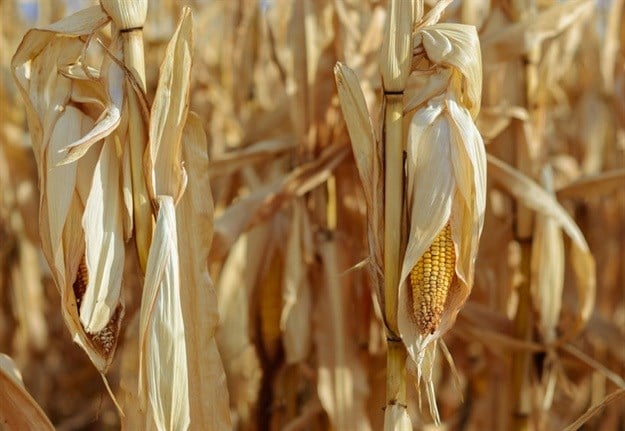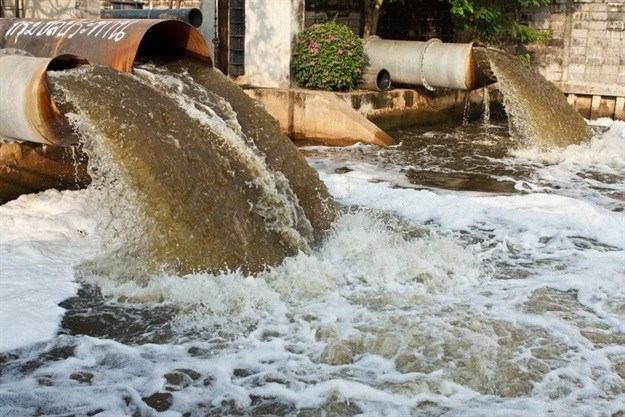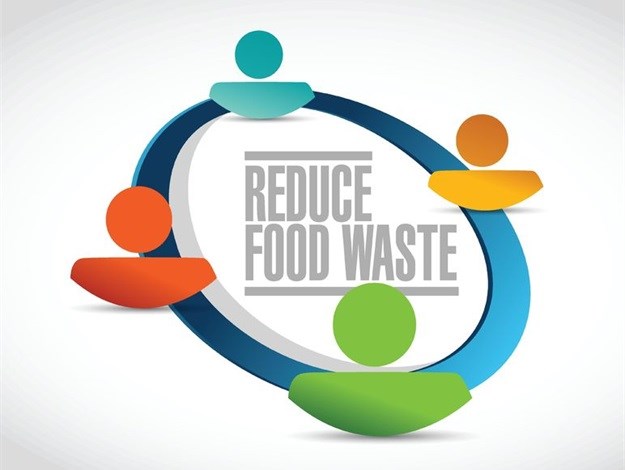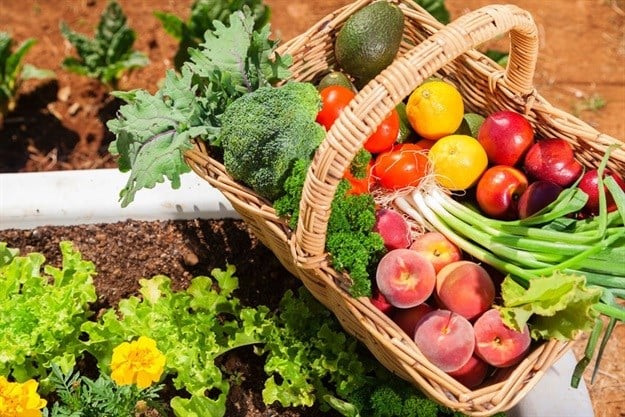The future of food
The current heatwave sweeping across South Africa is exacerbated by the lack of rainfall, leading to the current water crisis; sure signs that climate change is underway. El Nino is making itself felt globally, and is also behind the massive fires which recently raged along the 5000km length of Indonesia; another disaster of planetary proportions.
Not surprisingly, this year also saw South African farmers experiencing the worst maize-crop failure in eight years. This was followed by a wheat-crop failure. Cereal crops provide staple food not only for humans, but are also used as animal fodder.

Crop failure therefore affects the entire food system, increasing the cost of such products as meat, eggs and milk. As a consequence more food has to be imported, and this at a time when the rand has never been weaker against major currencies.
As if this isn't enough, the drought in South Africa is deepening and a water crisis is upon us.
Fresh water is in short supply, both on surface dams and in underground aquifers. Flowing from this, the government is imposing water restrictions in the worst hit parts of the country. Food supply is already under pressure and the ramifications are many.
Social instability
Food insecurity, aggravated by increasing poverty, is often behind social instability. Food systems researcher, Florian Kroll is clear on this point: "Food insecurity, especially in cities, is seldom due to lack of food; instead, consumers find food increasingly unaffordable."
High food costs also have a negative knock-on effect on nutrition, health, productivity and education. Recent food systems research conducted by the SA Food Lab and the African Centre for Cities extrapolates current trends into the future, and rationally maps out the consequences of failing to take action in good time. Worst-case scenarios include widespread hunger, social breakdown and mass uprisings.
Researcher Florian Kroll is concerned that the food system in South Africa is becoming increasingly unstable and fragile, and that the system risks falling into the hands of a few large operators. However he sees one upside: the development of alliances which actively promote system change.
Water supply and quality
Precious water, a prerequisite for all life, lies at the heart of food security. In South Africa today water is fast depleting and fast degrading.

An increasing number of fresh water dams are being polluted by inadequate sewage treatment plants; the situation is aggravated by fertiliser and pesticide run-offs from farmlands.
Acid mine drainage in the Gauteng region is affecting much of the underground, often non-renewable water reserves. The drought only worsens the situation, for when water flow is reduced, sewage systems become increasingly inefficient and threatened. If we fail to take care of the quality of our water, we will threaten a vital and precious resource.
Environmental attorney Tracey Davies of the Centre for Environmental Rights pulls no punches: "In South Africa, we are doing far too little to protect our strategic water source areas. These make up a tiny percentage of our land area, but are the source of most of our fresh water. These water source areas are often sacrificed for unsustainable development like coal mining.
Our government's energy decisions also appear to be based on an assumption that we have an endless supply of fresh water: there are plans for nine new independent coal fired power stations, with associated coal mines, as well as hopes that fracking - hugely water intensive - will take off across vast swathes of South Africa."
Vital questions
Currently there are many questions and few answers. Are these extreme weather conditions due to an extreme El Nino which will soon pass? Is this the direct result of climate change and global warming? How concerned need we be? Scientists have been sounding the alarm for years, even raising the possibility of an extinction process, but is anyone listening? Multi-national corporations and governments appear to have other priorities. Current trends do not give reason for hope. The gap between the haves and the have nots, seems to be widening.
Depletion of planetary resources
As planetary resources on land and sea decrease, so competition amongst suppliers increases. Rising costs then push these natural resources further out of the reach of the average consumer.
The problem with highly competitive mega corporations is that compassion, conscience and ethics are swept aside in the name of profit and shareholder interests. In an extreme scenario, this neglect may lead to the unravelling of the economy and the undoing of capitalism itself.
When a social system fails to promote the well-being of humanity and life in general, it destabilises and ultimately destroys the delicately balanced eco-system, which sustains it.
This applies especially to global pharmaceutical, energy, military and agricultural operations, many of which are more powerful than governments.
In all sectors we are currently witnessing a rising wave of predatory corporate behaviour, amounting to a virtual feeding frenzy over decreasing resources. This includes callous profiteering, contemptuous disregard for the law, irresponsible production methods and multi-layered corruption, all contributing to the degradation and destabilisation of our planet.
So much unnecessary suffering and irreversible degradation could be avoided if sustainable thinking combined with compassion and rationality came into the equation.
On one level we are creating the very deprivation we fear.
Valiant operations such as the Centre for Environmental Rights (CER), a group of dedicated environmental lawyers, are doing all they can to ensure environmental compliance, and to protect local communities, but the problem is almost beyond their control.
According to environmental attorney Tracey Davies, also Head of Corporate Accountability & Transparency at the CER: "South Africa's food security is being increasingly threatened by the rampant spread of coal mining in some of our most productive agricultural areas, especially in Mpumalanga."
Overconsumption and waste in developed countries
Among developed nations we see high level production methods aimed at maximising profit. This often involves questionable practices affecting consumer health.
Apart from blind overconsumption, an astounding 40% of American food never gets consumed and is totally wasted. This is according to a 2012 study undertaken by USA's National Resources Defence Council.1
Causes for such waste include the perishability of food, over-production, market and price fluctuations, as well as costs relating to transport, processing, refrigeration, packaging and storage.

In spite of this wastage and over-consumption, billions of people in under-developed countries suffer from malnutrition, hunger and deprivation on many levels.
In terms of feeding the planet such waste constitutes bad practice; it is vital to curtail such dysfunctional consumerism.
By profit-driven overconsumption and wanton waste, we further undermine the very environment that sustains us. Those who have the power to reverse the trend do nothing, for fear of affecting their bottom line.
'Bottom line' has become their mantra. Each mega corporation warrants a case study in itself.
Short time-frames and maximum profit govern decision making. Such short-sighted focus on immediate gratification has wiped out entire cultures in the past, but we never seem to learn. Today an internet search will reveal many peer-reviewed research reports on humanity's potential for its own demise.
Extinction won't happen tomorrow, but let us not be too complacent. Many species are becoming extinct and being on top of the food chain, we ignore such destruction at our peril.
Taking corrective action in good time is part of intelligent survival. The more proactive one is, the better the eventual outcome.
Food trends in the USA
An interesting, if disturbing fact is that the average item of American food travels about 1500 miles to get from "farm to fork".2
The implications are many.
- Long-distance, large-scale transportation of food consumes a disproportionate amount of fossil fuel.
- Transporting food over long distances by air, road or rail massively increases foods carbon footprint. Some forms of transport pollute more than others. Airfreight generates 50 times more CO2 than slower shipment by sea. Given our increasing demand for fresh food, even from the other end of the planet, food is increasingly being shipped by faster means. This not only drives up costs, but leads to higher levels of environmental pollution. Due to increasing transport costs, long distances negatively impact food security; the further afield the food source, the more tenuous the supply and certainly the higher the cost.
- In order to transport food long distances, much of it is picked while still unripe and then gassed to "ripen" it after or during transport. Alternatively it is highly processed in factories using preservatives, irradiation, and other means to keep it stable for transport and sale. Scientists are experimenting with genetic modification to produce longer-lasting, less perishable produce.
The health impact of harvesting un-ripened food and preservatives has not been fully assessed. At best early harvesting will affect nutritional value; at worst it could compromise human health. The recent warning by the Word Health Organisation on the cancer dangers of meat, links directly to maximising productivity and profits.
Global scenario
How on earth are we going to feed a projected population of ten billion by the end of the century?
Food and population experts from such classic institutions as Oxford University, have given thought to the looming problem. Professor Charles Godefroy, Population Biologist and head of the Oxford Martin Programme on the Future of Food, is vocal on the subject, yet holds out some hope.3
One positive aspect of his 2010 research predicts that by the end of this century, the world's rising population will have levelled out at around ten billion people. He suggests this will be due to better education and health and relatively better wealth. Based on this, Godefroy believes that most of these ten billion will have access to relatively good food.

However a more recent Canadian report, 'Food Quality and Safety', suggests that food costs will continue to rise, linking nutrition and health to affordability.4 This is a disturbing trend and needs to be addressed.
For example in the coming years, all forms of meat will become virtually unaffordable to most of humanity. This is because meat is more resource dependent than plant food.
In the final analysis we will simply have to adapt our diet to what the local environment, and the season, can deliver. To ignore or abuse our delicately interconnected ecosphere is simply self-defeating. One cannot cheat nature without paying a price.
Scenario planning, looking ahead
According to a SA Food Lab (SAFL) report, backed by the World Wildlife Fund, and posted in March this year, an increasing number of South Africans could face starvation and malnutrition in the coming decade.5
This is one of the scenarios recently mapped out by the Stellenbosch based (SAFL) team who conducted what they termed a 'structured conversation' on food security.
Such scenario planning involved the coming together of many rationally trained minds. This includes farmers, community members, large food corporations, civil society representatives and others.
Given South Africa's increasingly unpredictable food future, many reputable organisations are doing such planning in an attempt to prepare for whatever the future may bring. The general approach is to identify and extrapolate current trends, following this with a rational impact assessment.
The vulnerability of food
The SA Food Lab report which analyses our food system from 2015 up to 2030, included support by the WWF, Stellenbosch University, and the Ford Foundation. The study resulted in a fascinating, four-fold 'Transformative Scenarios Report', proving what many of us suspect; that food production in South Africa is vulnerable to many imponderables.
To give structure to their research, the team introduced many variables, any one of which could seriously threaten food production. When several variables conspire simultaneously against food production, the impact can be socially destabilising and at worst, catastrophic.
Such variables include drought, unstable climatic patterns, deforestation, degradation of land and water, transport, farm security, agricultural input costs, farmer expertise, diesel price, nutritional quality, market prices, land claims and power outages. Further food system stressors include population growth, consumption patterns, wars, compliance with environmental legislation, as well as the quality of government decision-making.
Food scenario predictions are based on current realities and then extrapolated into the future.
For example the average age of farmers in South Africa is 62. The SAFL team logically reasoned that if experienced, productive farmers were retiring from agriculture, with very few new farmers entering the field, the threat to the continued supply of affordable food was self-evident.
Every link in the food chain is critical. If we continue to damage key links such as bee pollination through pesticides, the inevitable downstream collapse will simply lead to more crop failures, famine and deaths.
Some of these scenarios are downright disturbing, yet only if we are aware of impending disaster, can we hope to avert it.
Where to from here?
As environmental attorney Marilynne Roberts once observed: "This is an interesting planet, and it deserves all the attention you can give it."
We are witnessing the development of an increasingly unstable food system. As concerned citizen Sara Cady pointed out: "What we need to remember and fight for, are the values inherent in truth, peace and love; not in the way of slogans, but by becoming aware of the way systems operate currently, and the ways in which they do not work at all"
Scenario planning makes good sense and we should all pay attention to such vital reports. Besides giving us food for thought, it will perhaps motivate more of us to act and think differently about food. For example we could cultivate some of our own vegetables and source food locally. The closer to home our food, the lower the cost, the higher the nutritional value and the greater our food independence.
We need to adjust our diet to suit our pockets, the environment and the season. Those of us who shop at nearby farmers' markets have already begun supporting a local food system.

To become part of the solution, we need to reduce waste by recycling and composting for a start. We should also be more vocal about the irresponsibility of big business that focus on short-term gains, ignoring the downstream price we and our children will be forced to pay.
Such action will enable us to improve our own food security, to reduce our food bill and to re-connect with this good earth. It is this that will enhance humanity's survival fitness, health and well-being.
References
1. Natural Defences Resources Council Report. www.nrdc.org/food-waste-report
2. Cuesa. Cultivating a healthy food system. www.cuesa.org/learn/how-far-does-your-food-travel-to-get-to-your-plate
3. Food Security: The Challenge of Feeding 9 Billion People. H. Charles J. Godefray, et al. Science 327, 812 (2010).
4. Food Safety in North America. www.foodqualityandsafety.com/article/food-safety-in-north-america/
5. World Wildlife Fund: Experts caution cause for alarm in future of SA food industry. www.wwf.org.za/what-we-do-/food-energy-water-nexus/
About Roger Metcalfe
- [Earth Focus] Water, the stream of life - 11 Feb 2016
- [Earth Focus] The future of food - 17 Dec 2015
- [Earth Focus] Walk on the wild side: thoughts around a campfire - 5 Oct 2015
- [Earth Focus] Solar power: lessons from nature - 15 Sep 2015
- [Earth Focus] Nuclear red. Renewable energy green - 17 Aug 2015
View my profile and articles...